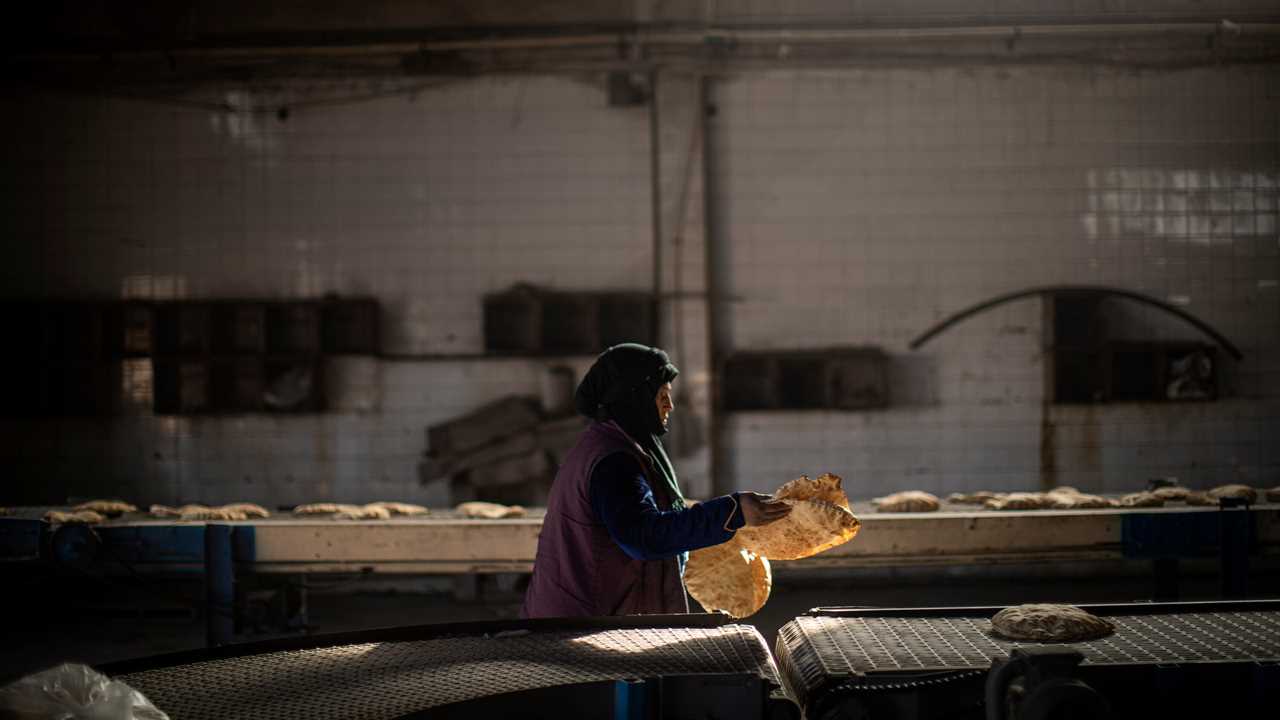
WASHINGTON — Ukraine has limited exports of sunflower oil, wheat, oats and cattle in an attempt to protect its war-torn economy. Russia has banned sales of fertilizer, sugar and grains to other nations.Indonesia, which produces more than half the world’s palm oil, has halted outgoing shipments. Turkey has stopped exports of butter, beef, lamb, goats, maize and vegetable oils.Russia’s invasion of Ukraine has unleashed a new wave of protectionism as governments, desperate to secure food and other commodities for their citizens amid shortages and rising prices, erect new barriers to stop exports at their borders.The measures are often well intended. But like the panic-buying that stripped grocery store shelves at various moments of the pandemic, the current wave of protectionism will only compound the problems that governments are trying to mitigate, trade experts warn.Export restrictions are making grains, oils, meat and fertilizer — already at record prices — more expensive and even harder to come by. That is placing an even greater burden on the world’s poor, who are paying an ever-larger share of their income for food, increasing the risk of social unrest in poorer countries struggling with food insecurity.Since the beginning of the year, countries have imposed a total of 47 export curbs on food and fertilizers — with 43 of those put in place since the invasion of Ukraine in late February, according to tracking by Simon Evenett, a professor of international trade and economic development at the University of St. Gallen.“Before the invasion, there’s a very small number of attempts to try and restrict exports of food and fertilizers,” Mr. Evenett said. “After the invasion you see a huge uptick.”The cascade of new trade barriers comes as the war in Ukraine, and the sanctions imposed by the West on Russia, are further straining supply chains that were already in disarray from the pandemic. Russia is the world’s largest exporter of wheat, pig iron, nickel and natural gas, and a major supplier of coal, crude oil and fertilizer. Ukraine is the world’s largest exporter of sunflower seed oil and a significant exporter of wheat, pig iron, maize and barley.With countries facing severe threats to supplies of basic goods, many policymakers have quickly dropped the language of open markets and begun advocating a more protective approach. Recommendations range from creating secure supply chains for certain critical materials in friendly countries to blocking exports and “reshoring” foreign factories, bringing operations back to their home countries.In a speech last week, Janet L. Yellen, the Treasury secretary, said the pandemic and the war had revealed that American supply chains, while efficient, were neither secure nor resilient. While cautioning against “a fully protectionist direction,” she said the United States should work to reorient its trade relationships toward a large group of “trusted partners,” even if it meant somewhat higher costs for businesses and consumers.Ngozi Okonjo-Iweala, the director general of the World Trade Organization, said in a speech on Wednesday that the war had “justifiably” added to questions about economic interdependence. But she urged countries not to draw the wrong conclusions about the global trading system, saying it had helped drive global growth and provided countries with important goods even during the pandemic.“While it is true that global supply chains can be prone to disruptions, trade is also a source of resilience,” she said.The W.T.O. has argued against export bans since the early days of the pandemic, when countries including the United States began throwing up restrictions on exporting masks and medical goods and removed them only gradually.Now, the Russian invasion of Ukraine has triggered a similar wave of bans focused on food. “It’s like déjà vu all over again,” Mr. Evenett said.Protectionist measures have cascaded from country to country in a manner that is particularly evident when it comes to wheat. Russia and Ukraine export more than a quarter of the world’s wheat, feeding billions of people in the form of bread, pasta and packaged foods.Mr. Evenett said the current wave of trade barriers on wheat had begun as the war’s protagonists, Russia and Belarus, clamped down on exports. The countries that lie along a major trading route for Ukrainian wheat, including Moldova, Serbia and Hungary, then began restricting their wheat exports. Finally, major importers with food security concerns, like Lebanon, Algeria and Egypt, put their own bans into effect.Mr. Evenett said the dynamic was “still unfolding” and likely to get worse in the months to come. Ukraine’s summer growing season for wheat is being disrupted as fighting keeps farmers away from their fields andBy: Ana Swanson
Title: Governments Tighten Grip on Global Food Stocks, Sending Prices Higher
Sourced From: www.nytimes.com/2022/04/30/business/economy/global-food-prices-ukraine.html
Published Date: Sat, 30 Apr 2022 07:00:10 +0000
Read More
Did you miss our previous article...
https://badpoliticians.com/us-politics/pandemic-aid-loss-stresses-hospitals-that-treat-the-uninsured
 UK PoliticsWorld PoliticsVideosPrivacy PolicyTerms And Conditions
UK PoliticsWorld PoliticsVideosPrivacy PolicyTerms And Conditions
